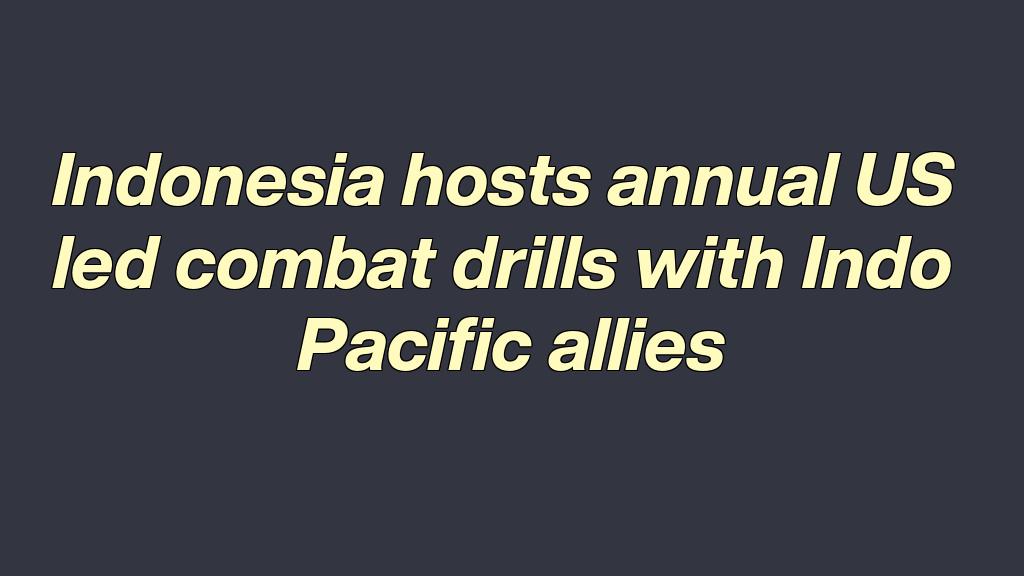(UPDATE) JAKARTA — Indonesia and the United States began annual joint military exercises on Monday together with forces from a dozen other countries, as the US pushes its allies to take threats from China more seriously.
Indonesia hosts annual US-led combat drills with Indo-Pacific allies

Hosted by the Indonesian National Armed Forces, this year’s Super Garuda Shield focused on strengthening regional ties in an increasingly unstable global landscape, said Gen. Tandyo Budi Revita, the military’s deputy commander.
“It serves as a joint exercise where we stand together to respond every challenge quickly and precisely,” he said in his speech at kickoff ceremony along with Adm. Samuel Paparo, commander of the US Indo-Pacific Command.
The exercise has been held annually in Jakarta by US and Indonesian soldiers since 2009. , This news data comes from:http://fru-jo-yh-yky.xs888999.com
The list of participants expanded since 2022 to include Australia, Japan, Singapore, the United Kingdom, France, Canada, Germany, the Netherlands, New Zealand, Brazil and South Korea, bringing the total number of troops taking part in the drill to 6,500.
Paparo said the expanded participants symbolizes a commitment to partnership and to the sovereignty of each country through mutual respect.
“It represents deterring anyone that would hope to change the facts on the ground using violence with the collective determination of all participants to uphold the principles of sovereignty,” he added.
Indonesia hosts annual US-led combat drills with Indo-Pacific allies
Jakarta has expressed concern about what it sees as Chinese encroachment on its exclusive economic zone in the South China Sea, while maintaining generally positive ties with Beijing.
Several Asian countries also sent observers to the 11-day combat exercise in Jakarta and on Sumatra island.
They will end on Sept. 4 with a combined live-fire drill.
The expanded drills have sparked concern from China, which accused the US of trying to build an “Asian NATO” to limit China’s growing military and diplomatic influence in the region.
Despite increased activities by Chinese coast guard vessels and fishing boats in the area have unnerved Jakarta, Indonesia has sought to avoid confrontation and continued economic initiatives with China.
Jakarta’s decision to sidestep the issue is consistent with its longstanding policy of keeping friction with Beijing behind closed doors, especially given the scale of Chinese trade and investment in the Indonesian economy, said Muhammad Zulfikar Rakhmat and Yeta Purnama, researchers at the Center of Economic and Law Studies or Celios.
“In a region defined by rising tensions and great power rivalry, Indonesia’s refusal to choose sides, at least in defense, might be its strongest asset,” Rakhmat added.
- Alex Eala targets US Open Round of 32 in rematch against Spanish rival
- Philippine forces deliver supplies and personnel to disputed South China Sea shoal despite tensions
- Maduro hits ‘illegal’ US troops deployment
- Lacson warns lawmakers may be complicit in ghost flood control projects
- Shooting of Indonesian diplomat in Peru investigated as a contract killing
- Comelec to open nearly two-year overseas voter registration for 2028 elections
- Marcos orders full budget review for DPWH amid ghost projects scandal
- Duterte Youth brings Comelec cancelation battle to Supreme Court
- Trump move to cut more foreign aid risking shutdown
- Peace efforts in limbo as Kyiv mourns 23 dead